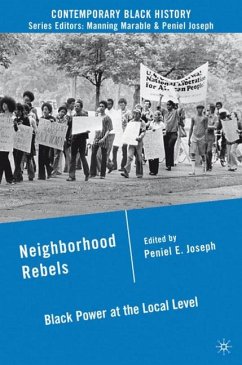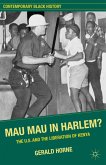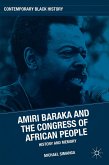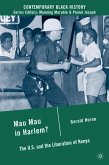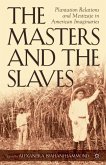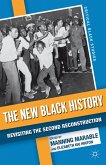This book examines the evolution of Black Power activism at the local level. Comprised of essays that examine Black Power's impact at the grassroots level in cities in the North, South, Mid-West and West, this anthology expands on the profusion of new scholarship that is taking a second look at Black Power.
"This book is definitely up-to-date, accurate, and in tune with the most cutting-edge scholarship and trends in the history of Black Power, which Joseph has played a key role in invigorating. Indeed, he is ahead of the curve in pushing the study of Black Power to new heights." - Matthew C. Whitaker, Associate Professor of History and Affiliate Faculty in African and African American Studies and the School of Justice and Social Inquiry, Arizona State University
"There is much to be excited about in this volume. It is an important work that not only offers fresh perspectives on the Black Power Movement, but a research template for undergraduate and graduate students interested in exploring the deeper dimensions of Black Power at the local level. Editor Peniel Joseph clearly understands this process and as a result has produced what I anticipate will widely be regarded as must read not only in the immediate future but for years to come." - Yohuru Williams, Vice President for History Education, American Institute for History Education
"Ten high-quality essays describe the varying ways in which black power as an ideology and a political program shaped post-WW II urban politics. The book excels in explaining how black power activists in Harlem, Milwaukee, Louisville, St. Louis, Baltimore, and Atlanta fought for community-based issues ranging from prison and welfare reform to school desegregation... Highly recommended." - CHOICE
"There is much to be excited about in this volume. It is an important work that not only offers fresh perspectives on the Black Power Movement, but a research template for undergraduate and graduate students interested in exploring the deeper dimensions of Black Power at the local level. Editor Peniel Joseph clearly understands this process and as a result has produced what I anticipate will widely be regarded as must read not only in the immediate future but for years to come." - Yohuru Williams, Vice President for History Education, American Institute for History Education
"Ten high-quality essays describe the varying ways in which black power as an ideology and a political program shaped post-WW II urban politics. The book excels in explaining how black power activists in Harlem, Milwaukee, Louisville, St. Louis, Baltimore, and Atlanta fought for community-based issues ranging from prison and welfare reform to school desegregation... Highly recommended." - CHOICE

